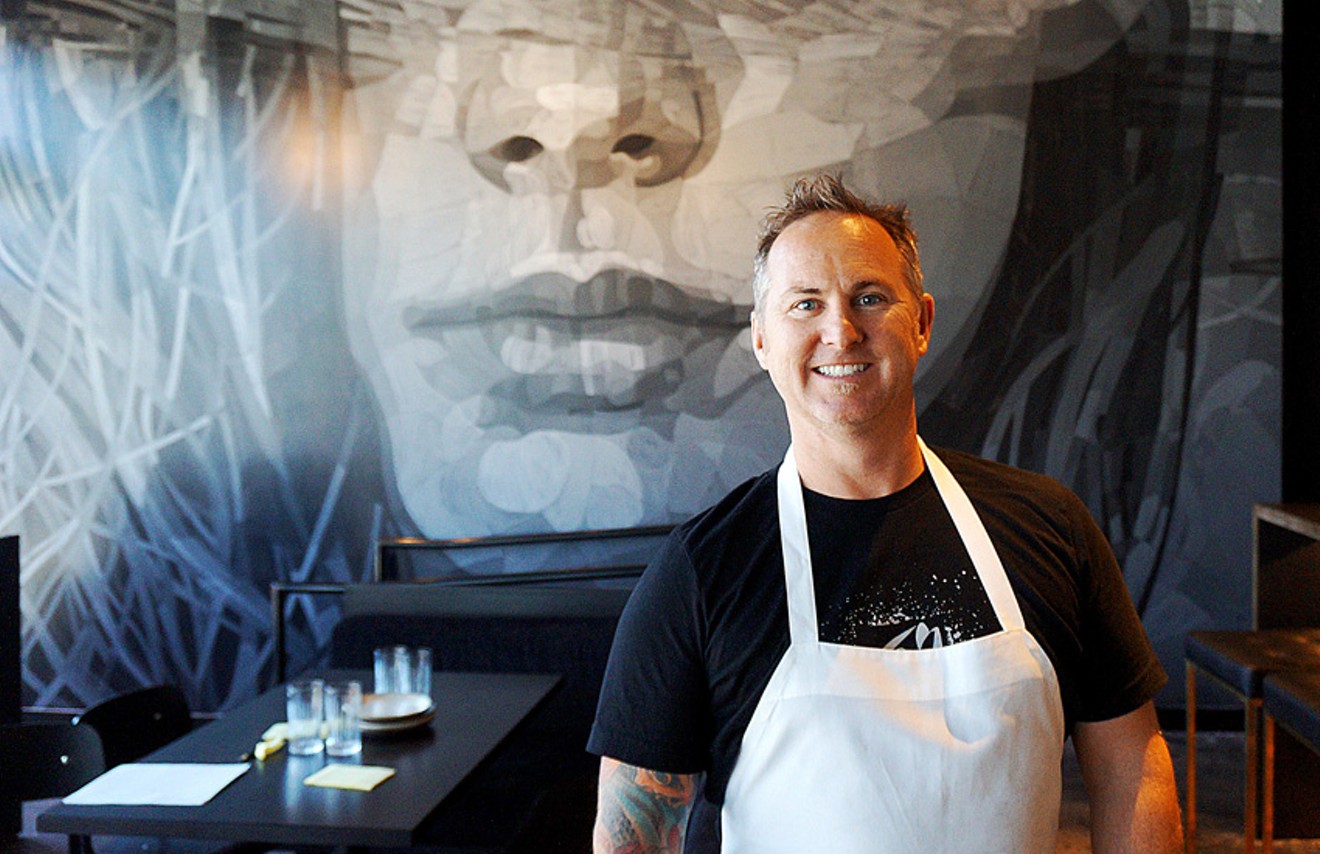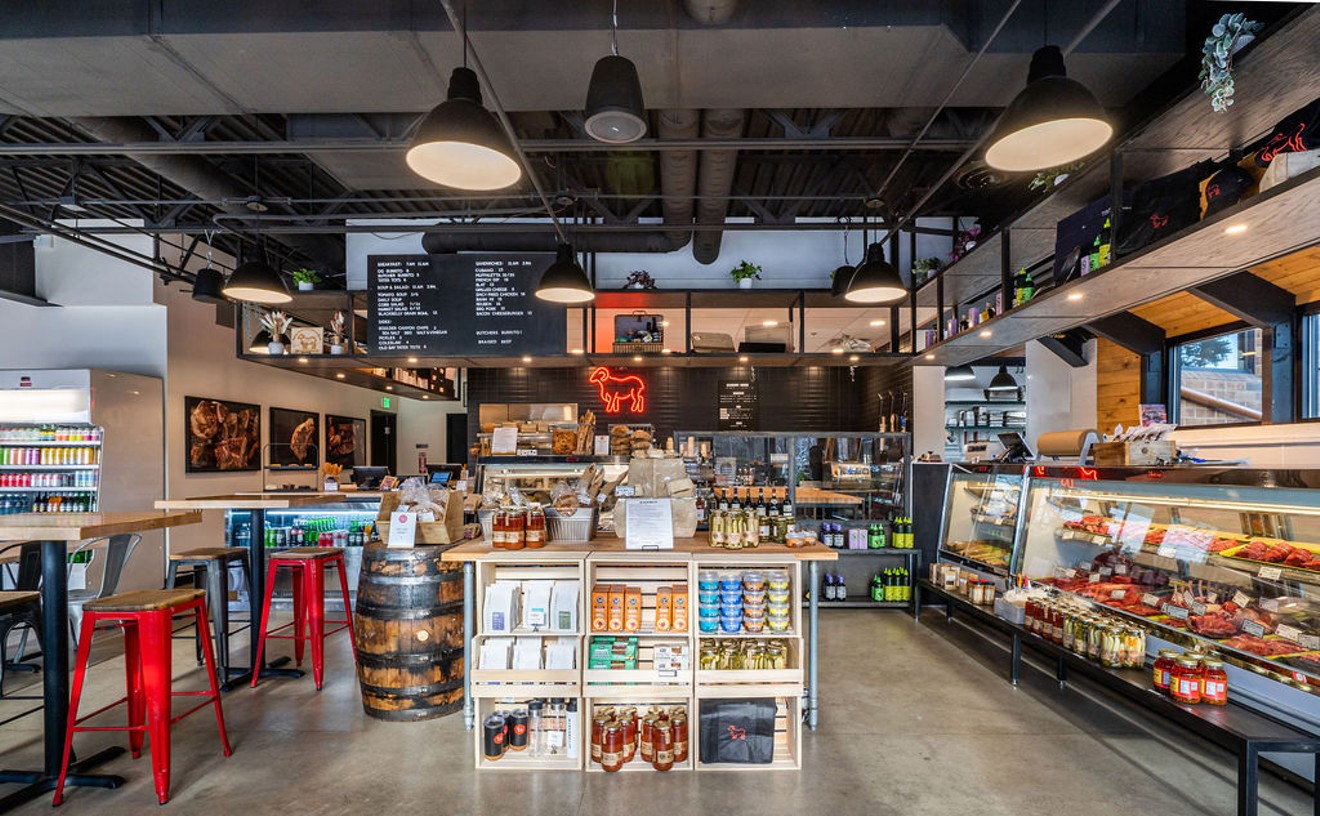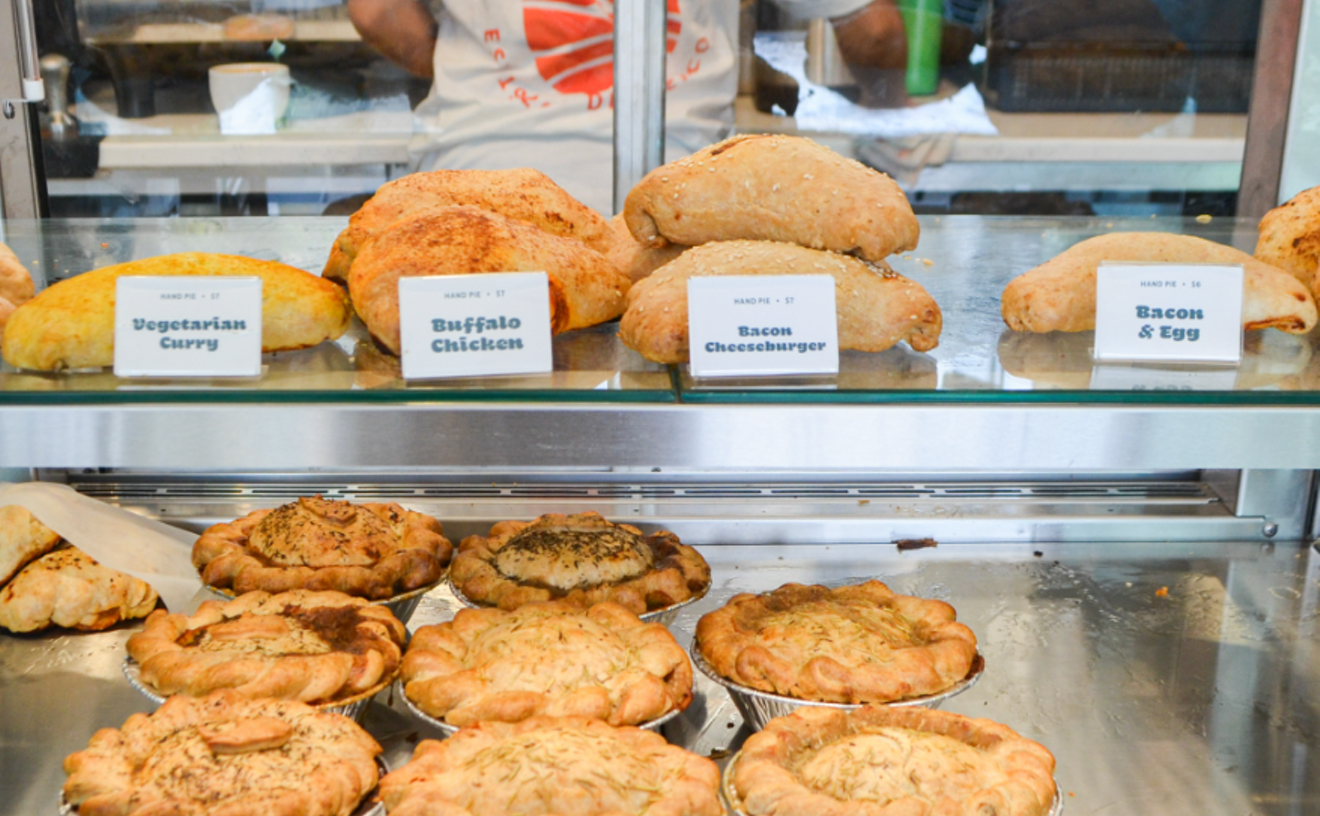We recently sat down with Guard to talk about his growing empire, the changes in Denver’s eclectic dining scene, and the importance of persistence in the wake of challenges — even ones as daunting as a public divorce.
Troy Guard: I was born in Hawaii. When I was seven, my parents split, so we moved to Seattle. When I was thirteen, my neighbor had a little sandwich shop. I said, I want to come check it out and make some extra money — I made $3 an hour. It was awesome. When I was fifteen, we had moved to San Diego, and the minute I turned sixteen, I started as a dishwasher. I loved the restaurant business. It was like a band of brothers. I really did everything — host, busboy — but I started working in the kitchen and kind of fell into it from there.
I went on to do two years of junior college, but I was always cooking to pay the bills. It wasn’t until I was 21 that I thought, oh, wow, this could be a career. I moved back to Hawaii. Back then, there was no Internet or anything, so I asked around, where’s the best place to work? The answer was for Roy Yamaguchi at Roy’s. He was born and raised in Japan and had gone to the Culinary Institute of America. I worked my ass off, and from there it really catapulted. I worked all over the world — New York, Singapore. Then I found an opportunity to move to Denver and jumped on it. It was the second-best decision I ever made. The first-best decision was moving to Asia, because that really opened my eyes to a whole new world and culture. But moving here, I got into the industry here at the right time. This city and state are amazing.
When I started here sixteen years ago, I worked at Tamayo and Zengo, and there were not that many chef-driven places. You had Mel’s, Barolo Grill, Kevin Taylor, but not too many other places. I really liked all the chefs. There was this cool camaraderie; we got together and had each other’s backs. I really liked that.
I worked my way around Denver, but then was lucky enough to break out on my own. I got a couple of investors to open TAG, named for my initials, right downtown. It was everything I desired. This is a cool little neighborhood, and we get a lot of tourists through here. I love Larimer Square, and I’m lucky to work with Larimer Associates. I didn’t really know what I was doing. The first couple of months, we almost closed the restaurant. It was a bad time to open, anyway — this was 2009, right after the crash. But I also didn’t know what it took to run a restaurant. I thought, I’m a pretty good chef, I can do this. But then there are 125 other things that go on besides cooking. I had to learn those really fast. Now we’ve been open for eight years.
TAG was about what I want to eat. I grew up in Hawaii, which is so multi-cultured. We had a lot of Asian flavors: Chinese and Japanese, Filipino, etc. That was kind of a foundation. And then moving to California, there were all these vibrant flavors, and you got the bold impact with Mexican. Traveling around the world showed me the diversity of people. So, really, all those travels led me to what TAG is today: The food is very bold and flavorful and fun to eat.
I never really thought I would do a second restaurant; I had enough on my plate with one. But little by little, opportunities came up, and eight years later, I have ten restaurants and three opening this year. We’re opening our third Los Chingones, and with it, we’re branching out into suburbia. I’m really excited and nervous to do that. Then there’s Hashtag, which we’ve been talking about for a long time. People enjoy breakfast. They work from home a lot more or have no set hours, so breakfast seems like a no-brainer. And then there’s FNG — a neighborhood restaurant with my fun take on comfort food that’s a little elevated, with a rock-and-roll vibe.
As a young chef, you want to cook the food that you like. Then, as you get older and a little bit more experienced, you start to say, hey, what do most people like? That’s how I started venturing off into Mexican, a steakhouse, burgers. I wanted to please everyone but also please myself. I wanted to keep trying new things and pushing the boundaries. I’m not doing traditional Mexican — it has a twist. Guard and Grace, a steakhouse, has a twist; it’s my personal spin.

Los Chingones has been so successful in RiNo, Guard had to shutter SugarMill to expand it.
Danielle Lirette
Expansion gives good people opportunity. People moving up into other positions, like servers who become managers, makes me really proud and excited. Those are your kids. Of course they’re going to leave someday — that’s what happens — but I try to give them a great experience along the way. A lot of great people have come through these four walls and now are doing exciting things elsewhere — some are sous-chefs, chefs, managers. Some have gone and done different businesses. Nothing feels better than when, five years after they leave, people call me and say, “Working for you was the best.” It’s super-exciting to share that.
[After these three restaurants open], we’re stopping for a while. We need to rally everyone and let the dust settle a bit: Denver is going crazy. Then we want to focus on a few of our concepts and grow those. We’ll venture out of state. I don’t have a number I want to hit — I’ve done every deal based on my heart or my gut, and as long as that keeps me going in the right direction, I’ll keep doing that. But we’ll expand Los Chingones and Hashtag — breakfast can fit into so many neighborhoods. We could do Guard and Grace in some big cities. It’s a big risk because it’s a big restaurant, but our partners at Brookfield want us to do more in their other buildings all over the U.S., and finding the real estate is half the battle. If we do it right, we could expand FNG. And then Bubu. We’re really spending a lot of time dialing things in with that.
Expanding beyond Denver will be a challenge: I can get to any restaurant right now in fifteen minutes. But that’s what growth is about. I worked for Roy [Yamaguchi] when he had two restaurants, and then he expanded to forty. So I’ve seen it done. It’s always hard. It’s going to be challenging, but I also think it’s going to be rewarding. We’ll adapt to where we go — I don’t want to be a chain. But I do want to have some Colorado identity, because it makes us special and unique.
Denver has grown to be very eclectic but very real. Chefs are making real, honest food, and I love that. We’ve grown organically. All the farms and the distilleries, beer and wine — they’ve really come together at one time; this is a mecca right now. Top Chef is here, so you know we’re doing something right. The growth of the city has been really cool; a lot of chefs have more than one restaurant now, and all kinds of chefs are doing all different kinds of cuisines. I think that’s fun for all of us, fun for the city and fun for the guest. Denver — they want that. They want new and exciting and different.
As we grow, we try to really take care of the community. We work with a lot of charities, and we use as many sustainable and local ingredients as possible. I’m big into philanthropy — I just built some gardens at National Jewish, and I had my daughter be a part of it. When I first started TAG, I wanted to do that. It was hard, because I had to cook here, but now I want to get out there and market and help the community.
Persistence all these years has been about keeping it real and not thinking I’m better than I am. Overcoming my divorce was crazy; there was a lot of emotion, a lot of controversy. But I put my head down and worked my ass off. That’s what I’ve always done. I learned a lot. I still have a folding metal chair in my office because I know I can’t forget where I came from — I can lose all of this fast. I’m not some big shot. I’m lucky, but luck also has to do with a lot of hard work. So I’m taking the time to listen to my heart and my gut. I spend a lot of time talking to mentors and being around good people. I’m not about negativity.













